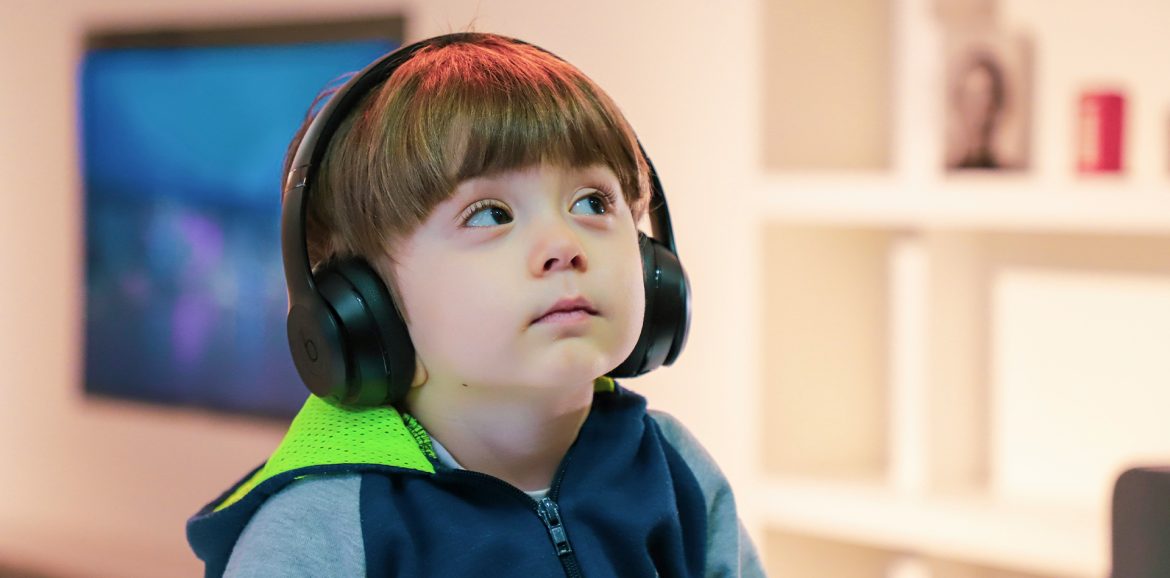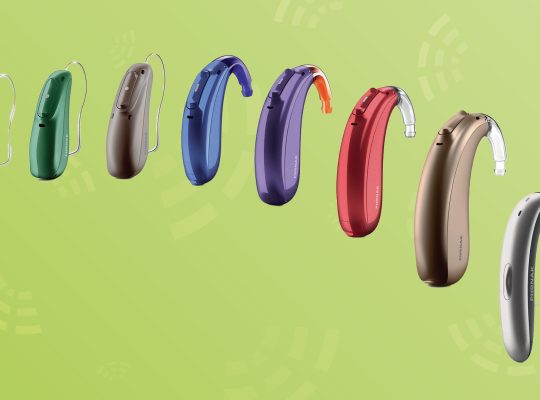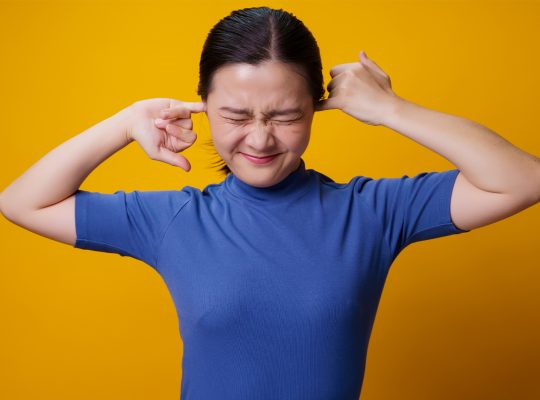A child exploring the world does so with all the senses. Hearing is an essential part of this: it helps with making contact, learning language, assessing safety and recognizing emotions. But what if a child suffers from hearing loss from an early age?
Hearing damage at a young age often has greater consequences than many people think. Not only medically, but also socially, emotionally and cognitively. In this blog, we dive into what hearing loss means for young children, how to recognize it, and what you can do to prevent or reduce damage.
Hearing = learning
For adults, hearing is important, but for children it is crucial. The first years of life are the time when language, sounds, speech and social skills develop rapidly. When hearing falters in this process, there are consequences.
Children with hearing problems may have difficulty with:
- language development
- pronunciation and vocabulary
- concentration
- social contact
- school performance
Even a relatively mild hearing impairment can have an impact. For example, if a child hears speech but cannot distinguish it well. Then it lacks just the nuance needed to understand language properly.
How does hearing damage occur in children?
There are several causes of hearing damage in young children. The most important:
1. Congenital hearing loss
Sometimes hearing damage is present at birth. This may be hereditary, or caused by an infection during pregnancy (such as rubella or CMV).
2. Hearing loss due to ear infections
Many children get middle ear infections in their early years. If they recur frequently, or are not treated properly, they can cause temporary or even permanent damage.
3. Noise damage
Perhaps not the first thing that comes to mind when you think of young children, but noise damage is becoming increasingly common – even in toddlers. Think loud music through headphones, prolonged noise at events or toys with high sound volume.
4. Medical complications
Some children lose hearing due to medications, meningitis or other medical complications.
What are the short- and long-term consequences?
The impact of hearing damage depends on how severe it is, at what age it occurs and how quickly it is noticed. But in general, the earlier the damage, the greater the impact.
Language and speech development
Children learn to speak by listening. When that listening is limited, a child learns fewer words, misses sounds or pronounces them incorrectly. This can cause language delays that continue to manifest themselves in school.
Emotional and social development
Not being able to hear well makes contact more difficult. A child may withdraw, become insecure or have difficulty making friends. Sometimes it is unfairly labeled as “shy,” “uninterested” or “difficult.
School Performance
Hearing loss can lead to difficulty concentrating, falling behind in reading or math, or fatigue from the continuous effort to keep up with everything. Children with hearing problems often try extra hard – and get exhausted faster as a result.
Self-image and self-confidence
If a child notices that they are “different,” or if they have to constantly ask for repetition, it can affect their self-image. Especially if the hearing loss is not (h)acknowledged, children sometimes feel left out.
How do you recognize hearing damage in young children?
Young children often cannot clearly indicate what they hear or do not hear. That is why it is important as a parent, caregiver or teacher to be alert to signals:
- unresponsive or slow to respond to sound
- Always looks at your mouth when talking
- Turns head conspicuously to one side
- talks little or unintelligibly himself
- Often asks “What?” or ignores you
- is not startled by loud noises
- prefers to watch TV at high volumes
- Has difficulty learning to talk or sing
When in doubt: have it checked. A hearing test at an audiological center or ENT specialist will quickly provide clarity.
What can you do in case of hearing damage?
1. Early detection
The earlier you get there, the better. There are aids, training and therapies that can support children well in their development. Some hearing problems are even temporary or treatable.
2. Hearing aids or other assistive devices
Special hearing aids and hearing amplifiers exist for young children. In some cases, cochlear implantation is an option. School-based aids such as solo devices or loops are also available.
3. Speech therapy and language training
Many children with hearing loss benefit from additional language support. A speech therapist can help with pronunciation, language comprehension and speech development.
4. Adjustments at home and school
Consider talking quietly, making eye contact, avoiding distracting background noise and providing visual support (gestures, icons, clear routines). Small adjustments make a big difference.
5. Protect against further damage
If your child is hearing impaired, or already has hearing loss, it is especially important to avoid noise. Use hearing protection at events, festivals, or with noise at school or sports club.
What can you do to prevent hearing damage?
Prevention – especially with young children – is always better than cure. A few practical tips:
- Do not use headphones at too high a volume. Set them at up to 60% and preferably choose models made specifically for children.
- Be careful with noisy toys. Toys that make noise should not be too loud by law, but in practice they sometimes are. Test it for yourself.
- Give rest to the ears. The ear also needs recovery time. So: after a party, festival or noisy environment build in some rest and silence.
- Beware of swimming or ear problems. Swim ear or recurrent ear infections can cause hearing damage. Earplugs or swim ear muffs can help with this.
- Teach your child about hearing. Make it clear from an early age that you should be careful with your ears – just as you are with your eyes or teeth.
Hearing loss in children is more than just ‘hearing less’
Hearing damage at a young age has a broad effect: on learning, communicating, growing, making friends and developing yourself. The good news: the earlier it is noticed and addressed, the better the outlook.
Pay attention to signs, take doubts seriously and call for help if necessary. And perhaps most importantly: keep looking at what your child can do. With the right support and protection, a child with hearing loss can often get surprisingly far.
Want to know more about hearing protection for children? In our webshop you will find child-friendly earplugs and customized solutions for swimming and flying.








